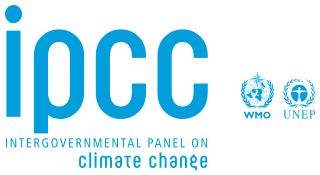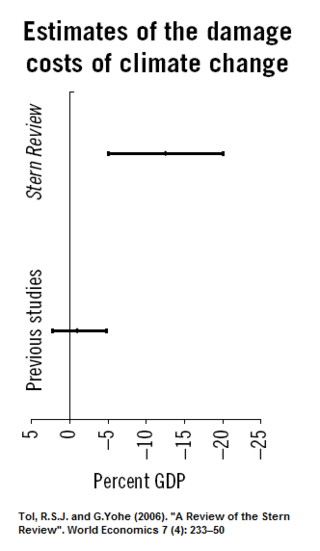
Scientific studies have investigated the causes of climate change. They have found that the main cause and driver of recent climate change is elevated levels of greenhouse gases produced by human activities. Natural forces add climate variability as well. Based on many scientific studies, it is "unequivocal that human influence has warmed the atmosphere, ocean and land since pre-industrial times." Studies on attribution have focused on changes observed during the period of instrumental temperature record, particularly in the last 50 years. This is the period when human activity has grown fastest and observations of the atmosphere above the surface have become available. Some of the main human activities that contribute to global warming are: (a) increasing atmospheric concentrations of greenhouse gases, for a warming effect; (b) global changes to land surface, such as deforestation, for a warming effect; and (c) increasing atmospheric concentrations of aerosols, mainly for a cooling effect.

The Intergovernmental Panel on Climate Change (IPCC) is an intergovernmental body of the United Nations. Its job is to advance scientific knowledge about climate change caused by human activities. The World Meteorological Organization (WMO) and the United Nations Environment Programme (UNEP) established the IPCC in 1988. The United Nations endorsed the creation of the IPCC later that year. It has a secretariat in Geneva, Switzerland, hosted by the WMO. It has 195 member states who govern the IPCC. The member states elect a bureau of scientists to serve through an assessment cycle. A cycle is usually six to seven years. The bureau selects experts to prepare IPCC reports. It draws the experts from nominations by governments and observer organizations. The IPCC has three working groups and a task force, which carry out its scientific work.
The United Nations Framework Convention on Climate Change (UNFCCC) is an international treaty among countries to combat "dangerous human interference with the climate system", in part by stabilizing greenhouse gas concentrations in the atmosphere. It was signed in 1992 by 154 states at the United Nations Conference on Environment and Development (UNCED), informally known as the Earth Summit, held in Rio de Janeiro. Its secretariat was in Geneva at first but relocated to Bonn in 1996. The treaty entered into force on 21 March 1994. "UNFCCC" is also the name of the Secretariat charged with supporting the operation of the convention, with offices on the UN Campus in Bonn, Germany.
The Summary for policymakers (SPM) is a summary of the Intergovernmental Panel on Climate Change (IPCC) reports intended to aid policymakers. The form is approved line by line by governments: "Negotiations occur over wording to ensure accuracy, balance, clarity of message, and relevance to understanding and policy."

The Special Report on Emissions Scenarios (SRES) is a report by the Intergovernmental Panel on Climate Change (IPCC) that was published in 2000. The greenhouse gas emissions scenarios described in the Report have been used to make projections of possible future climate change. The SRES scenarios, as they are often called, were used in the IPCC Third Assessment Report (TAR), published in 2001, and in the IPCC Fourth Assessment Report (AR4), published in 2007. The SRES scenarios were designed to improve upon some aspects of the IS92 scenarios, which had been used in the earlier IPCC Second Assessment Report of 1995. The SRES scenarios are "baseline" scenarios, which means that they do not take into account any current or future measures to limit greenhouse gas (GHG) emissions.

Climate change mitigation is action to limit climate change. This action either reduces emissions of greenhouse gases or removes those gases from the atmosphere. The recent rise in global temperature is mostly due to emissions from burning fossil fuels such as coal, oil, and natural gas. There are various ways that mitigation can reduce emissions. These are transitioning to sustainable energy sources, conserving energy, and increasing efficiency. It is possible to remove carbon dioxide from the atmosphere. This can be done by enlarging forests, restoring wetlands and using other natural and technical processes. The name for these processes is carbon sequestration. Governments and companies have pledged to reduce emissions to prevent dangerous climate change. These pledges are in line with international negotiations to limit warming.

The economic analysis of climate change explains how economic thinking, tools and techniques are applied to calculate the magnitude and distribution of damage caused by climate change. It also informs the policies and approaches for mitigation and adaptation to climate change from global to household scales. This topic is also inclusive of alternative economic approaches, including ecological economics and degrowth. In a cost–benefit analysis, the trade offs between climate change impacts, adaptation, and mitigation are made explicit. Cost–benefit analyses of climate change are produced using integrated assessment models (IAMs), which incorporate aspects of the natural, social, and economic sciences. The total economic impacts from climate change are difficult to estimate, but increase for higher temperature changes.

Climate change adaptation is the process of adjusting to the effects of climate change. These can be both current or expected impacts. Adaptation aims to moderate or avoid harm for people. It also aims to exploit opportunities. Humans may also intervene to help adjustment for natural systems. There are many adaptation strategies or options. They can help manage impacts and risks to people and nature. Adaptation actions can be classified in four ways: infrastructural and technological; institutional; behavioural and cultural; and nature-based options.

The IPCC Fourth Assessment Report (AR4) is a report on climate change created with the help of a large number of contributors, both scientists and governmental representatives. There has been considerable political controversy over a small number of errors found in the report, and there have been calls for review of the process used to formulate the report. The overwhelming majority view of scientists with expertise in climate change is that errors, when found, are corrected, and the issues as identified do not undermine the conclusions of the report that the climate system is warming in response to increased levels of greenhouse gases, largely due to human activities.
Climate risk is the potential for negative consequences for human or ecological systems from the impacts of climate change. It refers to risk assessments based on formal analysis of the consequences, likelihoods and responses to these impacts and how societal constraints shape adaptation options. However, the science also recognises different values and preferences around risk, and the importance of risk perception.
Kenneth Caldeira is an American atmospheric scientist. His areas of research include ocean acidification, climate effects of trees, intentional climate modification, interactions in the global carbon cycle/climate system, and sustainable energy.

The economics of climate change mitigation is a contentious part of climate change mitigation – action aimed to limit the dangerous socio-economic and environmental consequences of climate change.

Climate change scenarios or socioeconomic scenarios are projections of future greenhouse gas (GHG) emissions used by analysts to assess future vulnerability to climate change. Scenarios and pathways are created by scientists to survey any long term routes and explore the effectiveness of mitigation and helps us understand what the future may hold. This will allow us to envision the future of human environment system. Producing scenarios requires estimates of future population levels, economic activity, the structure of governance, social values, and patterns of technological change. Economic and energy modelling can be used to analyze and quantify the effects of such drivers.
David G. Victor is a professor of innovation and public policy at the School of Global Policy and Strategy at UC San Diego, where he holds the Center for Global Transformation Endowed Chair in Innovation and Public Policy.

The contributions of women in climate change have received increasing attention in the early 21st century. Feedback from women and the issues faced by women have been described as "imperative" by the United Nations and "critical" by the Population Reference Bureau. A report by the World Health Organization concluded that incorporating gender-based analysis would "provide more effective climate change mitigation and adaptation."
William R. Moomaw is the Professor Emeritus of International Environmental Policy at the Fletcher School, Tufts University. Moomaw has worked at the intersection of science and policy, advocating for international sustainable development. His activities have included being a long-time contributor to the Intergovernmental Panel on Climate Change and an author on the seminal "Perspective" paper on proforestation.
Green recovery packages are proposed environmental, regulatory, and fiscal reforms to rebuild prosperity in the wake of an economic crisis, such as the COVID-19 pandemic or the Global Financial Crisis (GFC). They pertain to fiscal measures that intend to recover economic growth while also positively benefitting the environment, including measures for renewable energy, efficient energy use, nature-based solutions, sustainable transport, green innovation and green jobs, amongst others.
Navroz K Dubash is a professor at the Centre for Policy Research (CPR). He works on climate change policy and governance, the political economy of energy and water, and the regulatory state in the developing world. Widely published in these areas, Navroz serves on the Intergovernmental Panel on Climate Change as a Chapter Lead Author, Government of India advisory committees on climate change, energy and water policy, and the editorial boards of several international journals.
Joeri Rogelj is a Belgian climate scientist working on solutions to climate change. He explores how societies can transform towards sustainable futures. He is a Professor in Climate Science and Policy at the Centre for Environmental Policy (CEP) and Director of Research at the Grantham Institute – Climate Change and Environment, both at Imperial College London. He is also affiliated with the International Institute for Applied Systems Analysis. He is an author of several climate reports by the Intergovernmental Panel on Climate Change (IPCC) and the United Nations Environment Programme (UNEP), and a member of the European Scientific Advisory Board for Climate Change.
Koko Warner is a climate change expert who specializes in human migration and displacement and who holds a PhD in economics from the University of Vienna. In 2014, the International Council for Science named Warner as one of the top 20 women making contributions to climate change debate.








